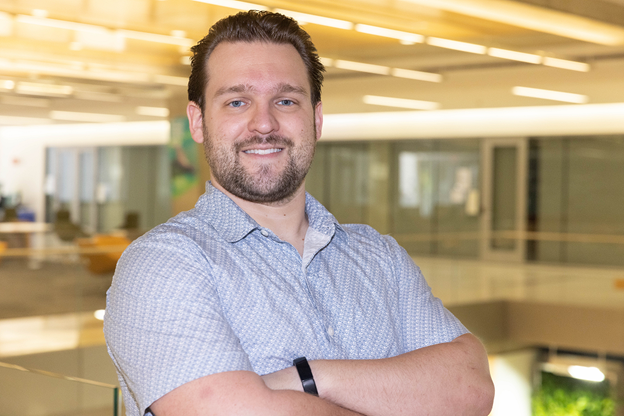April 2023 Fredericksburg Dinner Meeting - In Person
Speaker's Bio:
Anthony Hennig
Anthony Hennig just graduated with his PhD from the Systems Engineering department at the George Washington University's School of Engineering and Applied Science in Washington D.C. He received his B.S. in Mechanical Engineering and his M.S. in Science, Technology, and Public Policy from the Rochester Institute of Technology in 2016. Anthony's research experiences and educational focus have been on space mission architecting as well as its interaction with space policy. His thesis focused on sustainable policies for the engineering, business, and legal aspects of space mineral resource activities. Outside of academia, Anthony has worked for the Space Mission Analysis Branch at the NASA Langley Research Center, lead systems engineering efforts for GWU CubeSat, developed hardware for CubeSats and educational high altitude balloon flights, mentored students in high school and college in engineering, and established a space systems engineering research group at the Rochester Institute of Technology, RIT SPEX. At APL, he is working to continue his research and improve systems engineering architecting, measurement tools, and processes.
Seminar Description:
There is a growing importance to measuring system architecture properties, such as complexity, modularity or other “illities,” but after an extensive review of Engineering Design and Systems Engineering (EDSE) literature, there is no leading or agreed-upon methodology to measure these properties. Consequently, there is little agreed upon theory about these phenomena, and I contend that the difficulty in measuring properties and in representing system architectures contributes to the difficulty in developing theory and must be addressed.
This dissertation addresses the variability in the measurement process and comprises of three major research thrusts to address those concerns. First, I created a large set of system architecture data from the Astrobee Open Innovation Field Experiment, a challenge series with 17 unique engineering challenges with high degrees of replication for a variety of intentionally architected systems as well as engineer/designer data. Secondly, I explored how system architecture representation affected the measurement of architecture properties using real-world engineering data. Thirdly, I synthesized the literature on complexity into a few commonly held beliefs and I found none of the representative measures used consistently captured those beliefs. Combined, these three research thrusts contribute to the systems engineering literature on measuring and theorizing about system architecture to build a better foundation for future systems engineering research.
Learning Objectives:
- Approaches that leverage both the quantitative and qualitative can contribute to improvements in systems engineering processes and theorizing
- Open Innovation experiments and game-based simulations provide great opportunities to study systems engineering
- Measures should be critiqued and critically investigated to determine their construct validity, or how closely a measure captures a given phenomenon or concept.
Both photography and videography will likely be taken on site or virtually to document PMICVC events and activities. Photographs and video footage are the sole property of the PMICVC. By registering, you, as the registrant, understand that PMICVC may use your likeness for promotional purposes. If you do not wish to be photographed or recorded using audio or video, please notify a board member on site or do not use your audio or video for this live virtual event.
It is no longer possible to register for this event





